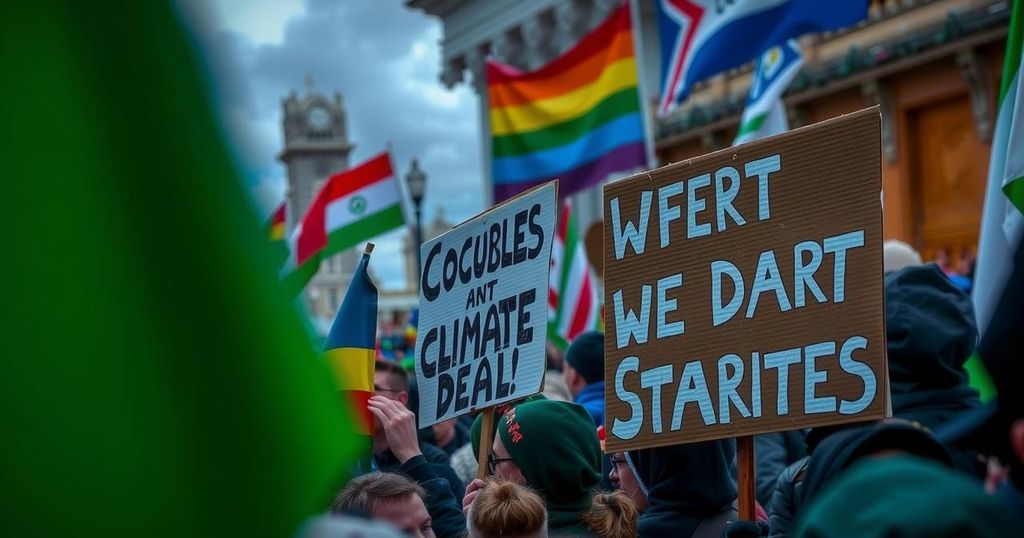At COP29, climate-imperilled nations protested a proposed finance deal they deemed insufficient, leading to heightened tensions over the commitments made by wealthier countries. Key figures from vulnerable states expressed their dissatisfaction with financial offerings and called for a more equitable climate negotiation process.
At the UN COP29 conference in Baku, Azerbaijan, prominent nations most vulnerable to climate change expressed their dissatisfaction by walking out of negotiations over a contentious finance deal. The demonstration stemmed from frustrations regarding inadequate financial commitments from wealthier nations, as small island nations and impoverished African states voiced their demands for a fair and substantial agreement to address climate crises. Cedric Schuster, the Samoan chairman of the Alliance of Small Island States (AOSIS), lamented that their concerns were not being properly addressed, stating, “We feel that we haven’t been heard.”
The negotiations aimed to establish a commitment from wealthier countries to increase their contributions to climate change response efforts to $300 billion annually by 2035, a response perceived as insufficient by many developing nations. AOSIS’s withdrawal from the discussions illustrates their urgent call for an inclusive negotiation process. Jiwoh Abdulai, Sierra Leone’s climate minister, denounced the proposed draft, describing it as potentially fatal for global environmental efforts. Amidst these tensions, UK Energy Secretary Ed Miliband asserted that the revised commitment marked a substantial increase from previous financial offers, which had been viewed as inadequate.
As discussions continued late into the evening, the complexities of reaching a unified agreement reflected the broader struggles between developed and developing nations over climate finance. Despite intentions to build bridges, significant disparities remained, with the European Union advocating for annual reviews of fossil fuel reduction efforts, which faced resistance from countries like Saudi Arabia. German Foreign Minister Annalena Baerbock emphasized the obligation of wealthier nations not to undermine the most vulnerable countries, particularly those most affected by climate change.
Overall, the COP29 conference revealed the mounting tensions regarding financial responsibilities towards climate adaptation and mitigation and highlighted the critical need for a collectively agreed upon, equitable solution among nations.
The COP29 conference serves as a critical assembly point for global leaders to negotiate financial support to combat climate change, particularly focusing on the commitments made by wealthy nations to assist developing countries. The dissatisfaction expressed by climate-threatened nations underscores the continuous struggle faced by smaller island states and impoverished regions in obtaining adequate resources for combating climate change repercussions. The proposed increase in financial commitment to $300 billion annually by 2035 highlights ongoing debates surrounding equity in climate finance and the capacity of developed nations to support vulnerable nations effectively.
The protests at COP29 illustrate the urgent demands of climate-vulnerable nations for fair financial commitments from wealthier countries. Despite efforts to negotiate a substantial increase in funding, significant gaps persist between developed and developing nations, leading to feelings of dissatisfaction and calls for a more inclusive approach. The ongoing discussions reflect the critical nature of addressing climate finance inadequacies if global efforts to mitigate climate change are to be successful and equitable.
Original Source: www.fox28spokane.com






